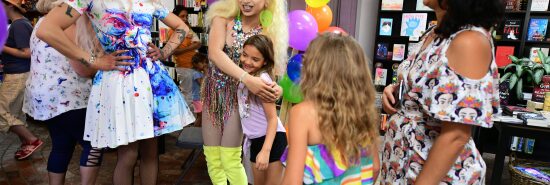
Philadelphia science museum attempts to combine science and drag
Briana Oser
Video Embed
On June 17, the Franklin Institute, a major science museum in Philadelphia, will host “Family Pride Day.”
The museum claims the event will have demonstrations that “combine science and drag,” a notion that seems a little ironic considering the conflict between liberal identity politics and science.
VIOLENCE AGAINST TEACHERS CANNOT BE TOLERATED
Liberals’ common justification for drag is that it “celebrates differences.” It exposes children to people who dress outside of the status quo, who express themselves proudly and colorfully. They argue that drag events will encourage children to embrace their own identities.
Conservatives push back against drag shows for children because they are often sexual. But liberals say that children don’t even notice the sexual aspects of drag. All they see is somebody in a funny costume.
This raises two questions. One, should we expose our children to inappropriate behavior under any circumstances, even if they do not totally understand that what they are seeing is sexual by our standards?
Two, are the “differences” we want to normalize for our children really characterized by drag shows, which are overt displays of degenerate behavior?
Something everyone knows about children is that they are the most impressionable population. Their brains act like sponges. This is why when you’re young, it’s so much easier to learn a language than when you’re old.
I know that for Gen Z, the media we consumed as children had a direct effect on our development and interests growing up. If we were really into Hannah Montana, we wanted to buy blonde wigs and become superstars. We imitated what we idolized.
Nowadays, sadly, we are seeing this take place with TikTok influencers. If you ever hang out with a fourth grader with a phone, she will quote TikTok “audios” to you every 30 seconds.
Similar to media figures and TV show characters, older role models have a huge impact on children. This is the reason why camp counselors seemed so cool. When we were 8, we all wanted to be 16.
Little girls are attracted to color and glitter. And if they want to dress up in rainbows and tutus, allowing them to do so is a good parenting move. They are children, and they should dress like children: This is appropriate self-expression.
If you take children to drag shows and they hear everyone cheering and laughing, yes, they will probably think drag queens are great. To a degree, you will have succeeded in “normalizing” them. But we do not want children to imitate drag queens.
Just because children do not understand sexual behavior does not mean we should expose them to it. This is a scary notion that pedophiles use to justify their perverted attractions. But, as we know, victims of pedophilia are affected when they are exposed to sexual behavior, even if they are too young to understand.
Plus, drag queens simply do not contribute to a functioning society. We don’t want them to be role models for children. All they do is put on tight outfits and “entertain” an audience with crude jokes and loud outfits. We shouldn’t uplift any occupation that profits off appearance and sexuality. There are other ways of teaching acceptance and inclusion.
CLICK HERE TO READ MORE FROM THE WASHINGTON EXAMINER
Briana Oser is a summer 2023 Washington Examiner fellow.
